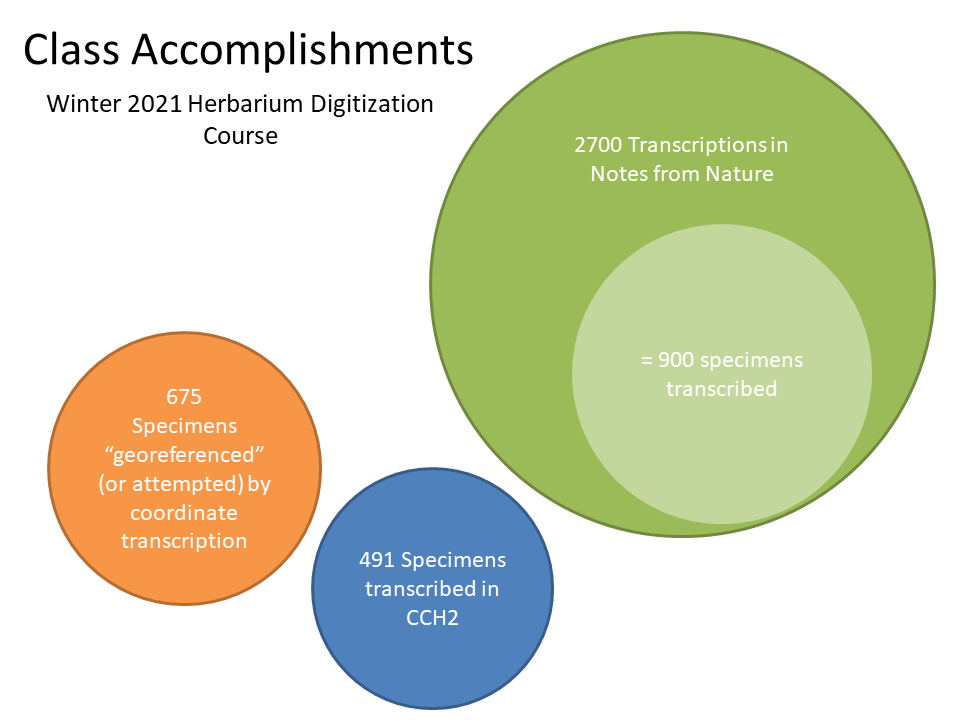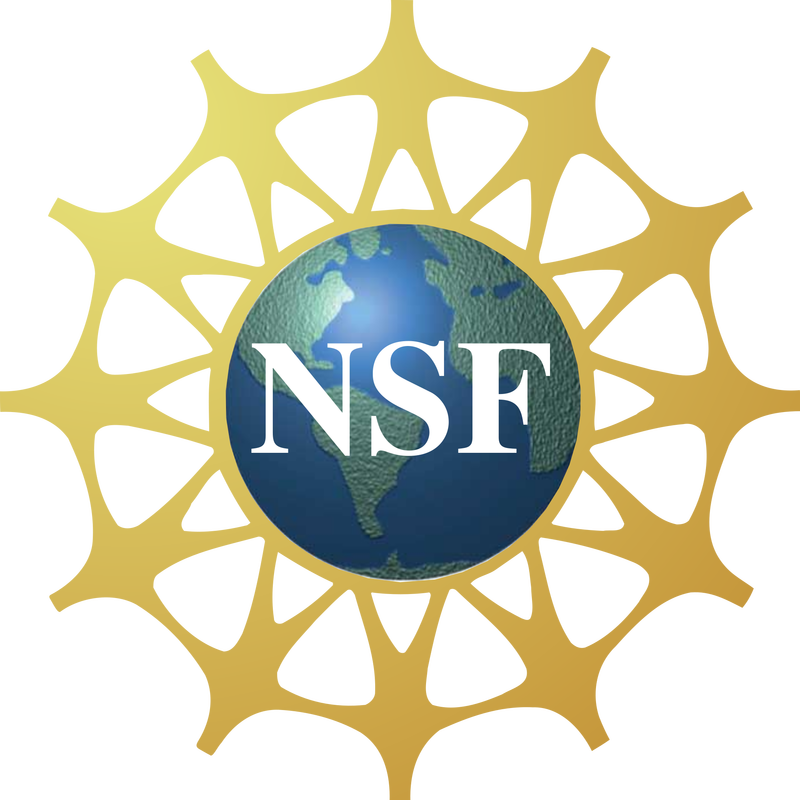The California Phenology Network kicked off the new year with another herbarium digitization internship course for students at many of our collaborating institutions. This winter quarter, 30 students joined from 9 universities and colleges: Cal Poly, CSU San Bernardino, Pacific Union College, San Francisco State University, UC Irvine, UC Los Angeles, UC Riverside, UC Santa Barbara, and UC Santa Cruz. The students learned a variety of digitization skills, including transcribing herbarium labels and identifying and converting different coordinate systems into decimal degrees. All students learned to use CCH2 to edit and curate data, as well as how herbarium specimens are used for vital scientific research. Each student read and presented a poster about a primary research article during class, and they participated in a virtual herbarium tour and virtual collecting demonstration.
Not only did the students learn valuable, transferable skills, but they also accomplished a lot in the process. Together the students transcribed and converted coordinates for 675 specimens, and they completed over 2700 Notes from Nature transcriptions and 491 transcriptions in CCH2. Because specimens require three transcriptions in Notes from Nature to be complete, this amounts to nearly 1,400 specimens transcribed overall—but that's only counting transcriptions completed during class time! Many students went above and beyond to transcribe specimens outside of class time, sharing fun discoveries and asking questions via a student-led GroupMe.
In a final reflection assignment, students were enthusiastic about the course and shared that they gained much deeper understandings about herbaria and the uses of herbarium specimens.
"I learned they [herbarium specimens] are useful in taxonomy, systematics and so much more!" wrote one student.
Another student related their experience to their plans beyond the internship: "Now, I realize just how helpful herbarium collections can be in my future career."
Many students enjoyed the course so much that they will be returning to the internship for the spring 2021 quarter. In the upcoming course, students will learn how to georeference specimens using locality information from specimen labels—potentially even the labels they transcribed during the winter quarter! The CAP Network is committed to involving the next generation of scientists in this important work, and we look forward to leading more classes across and within institutions throughout the network.
For more information about how to involve herbarium specimens and digitization into your own courses, visit our Educational Materials page. Do you have students interested in participating in a future digitization course? Email the project manager, Katie Pearson, for details.

